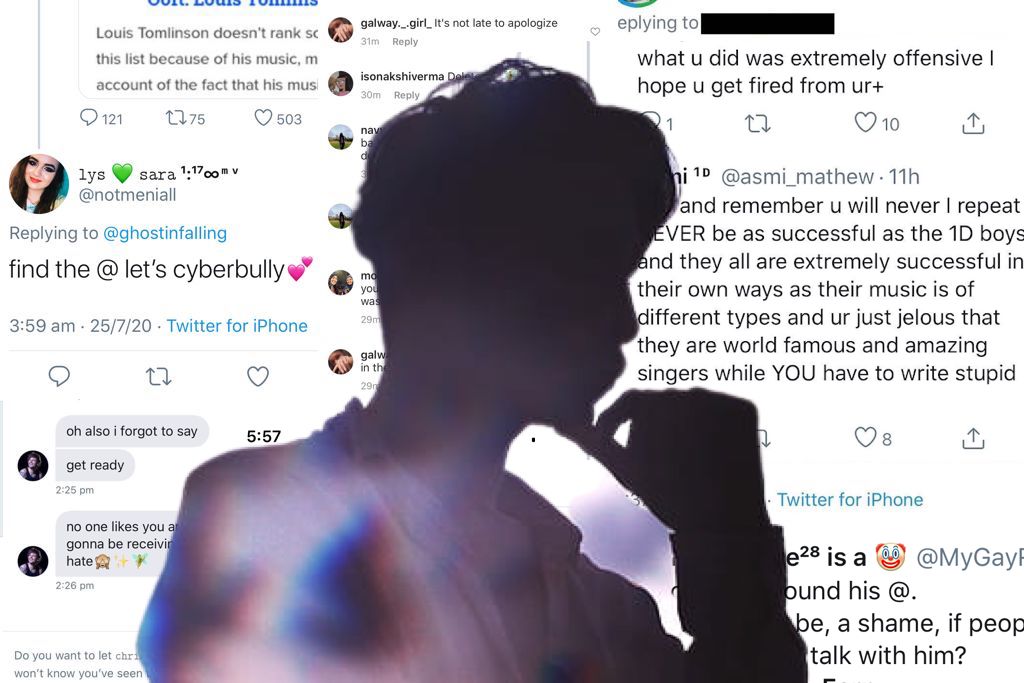We Need To Talk About Stan Culture, Anonymously
For the health and wellbeing of our staff, in the future, articles about stan culture and certain popstars will now be published anonymously.

One of the most important duties in my job is to ensure the welfare of the company’s team of full-time and freelance writers. Fortunately, writing for a suite of primarily pop culture-focused websites doesn’t usually rank among the world’s most dangerous occupations. But there is one time where that’s not necessarily true: when we write about popular musicians.
Every time we write about an artist — especially a popstar — we run the risk of incurring the wrath of that artist’s fans, especially those who have taken on ‘standom’ as a primary element of their own personal identity. At its best, being a stan means you’re part of a wonderful community united by a shared love. At its worst, stan culture is a toxic, vindictive swamp where fans are encouraged to outdo each other with performative displays of devotion to their chosen hero.
In my three years at Junkee Media, I can think of at least a dozen times our staff have been the targets or orchestrated harassment campaigns that range from childish memes to very specific threats. Staff have had their locations revealed online, their families and universities bombarded with emails and calls, and their social media profiles flooded with hate and threats. All because of stan culture.

It happened again last week when Junkee’s Joe Earp had the gall to write about One Direction. The piece was a light-hearted look at the 1D boys’ respective solo careers. But to the self-identified stans of Louis Tomlinson, whose career we felt hasn’t shined as brightly as his former fellow bandmates, it was a declaration of war. What started as a trickle of tweets quickly became a flood, engulfing Joe’s social media profiles with abuse and threats, including some aimed at Joe’s beloved adopted greyhound, Ida.
Joe was initially amused by the the tweets, but things turned dark pretty quickly as it became clear he was the target of an orchestrated attack by these self-identified stans — many of them barely into adulthood — from across the globe. Joe and I had to speak several times over an increasingly anxious and disturbed weekend. It would be seem easy to laugh off a single instance of this abuse, but when you’re in the centre of a storm engulfing every part of your online life, it’s impossible to ignore.
As a business, there’s only so much we can do to protect our writers. Social media platforms offer a few tools to protect users, but they’re not adequate. All of our employees have access to a 24-hour counselling service, but that’s only useful after the fact. The safest route would be to not write about certain popular artists at all, but we’re a music publication, so that’s not really an option.
At Junkee, we’ll continue writing about popstars, and in the coming months we will focus especially on ‘stan’ culture, and the risks it poses to those who participate at every level of the music industry, from fans, to writers, to the artists themselves. It’s an important conversation, and we want to be a part of it. But where we feel its necessary, we won’t be publishing our pieces under any individual’s byline. Instead, pieces that we feel pose a risk to our writers will sit under a generic Music Junkee byline.
It’s disappointing that we have to do this. It’s a sad indictment on this particular element of the music industry, and it runs counter to Junkee Media’s editorial code, which says that all content should have a byline unless there’s a good reason not to. Sadly, we have a good reason not to, and it’s the health and wellbeing of our staff.
Rob Stott is the Editorial Director of Junkee Media.
